Baby joy for couple who lost 13 babies to miscarriages
- Published

Ivy Worsley is now a healthy nine-month old girl
A woman who suffered 13 miscarriages gave birth to a girl after pioneering work by a fertility expert.
Eleven of Laura Worsley's pregnancies ended in the first trimester but she also lost two boys at 17 and 20 weeks.
Professor Siobhan Quenby discovered she had two conditions affecting her ability to have children.
Mrs Worsley and her husband Dave, from Kenilworth, got pregnant a 14th time and, with the help of Prof Quenby and her team, had a daughter named Ivy.
"Even now, nine months on, I can't believe she's actually mine," said Laura, 35.
It was in 2008 the couple suffered the heartbreak of their first miscarriage. They said when it happened a third time, they knew something was wrong.
Doctors advised them to keep trying but, after their fourth pregnancy ended, they were referred to Prof Quenby at University Hospital of Coventry and Warwickshire's Biomedical Research Unit.
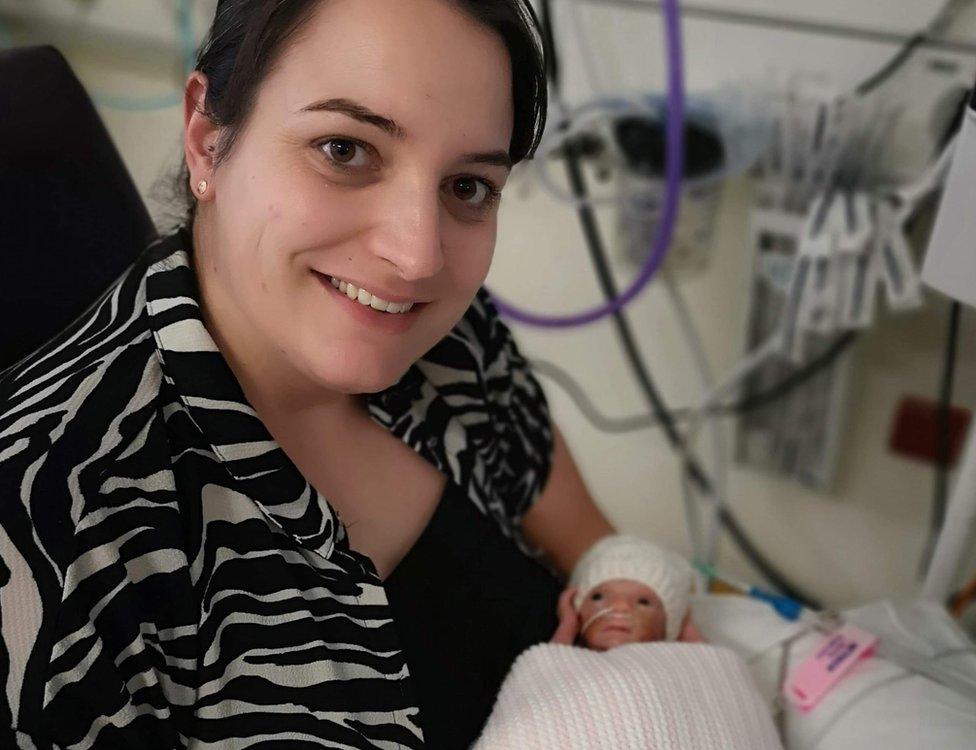
The birth of Ivy is a story that is being shared in medical circles all over the world
It was discovered Laura had Antiphospholipid syndrome, also known as "sticky blood syndrome", which can cause recurring pregnancy loss.
"We were told a high dose of folic acid might sort it, but it didn't," said Laura, whose continued pregnancies never progressed beyond a few weeks.
"We took part in trials, did all the tests and tried different medications, hoping something would work."
Two pregnancies did get beyond the 12-week stage but the couple lost their boys, Graceson and Leo, in 2015 and 2017.
"I don't know how I coped, to be honest," said Laura. "Dave stayed strong for me but when we lost the boys, he really struggled with that.
"It was all I lived for - I lost years of my life. I just thought, if I can't have a baby I don't see a point in my life," she said.
'Last time'
Leo's placenta was tested and results showed Laura also had Chronic Histiocytic Intervillositis (CHI), which causes the body to fight pregnancy.
"It was causing my placenta to die in places," said Laura.
"I wasn't sure I wanted to try again. But Professor Quenby said she had helped women with this successfully.
"I thought if there's that one bit of hope, I had to try again. I spoke to Dave about it and he felt the same.
"I told myself, this is the last time I'm doing this."
After medication to improve the lining of Laura's womb, the couple conceived naturally for the 14th time.
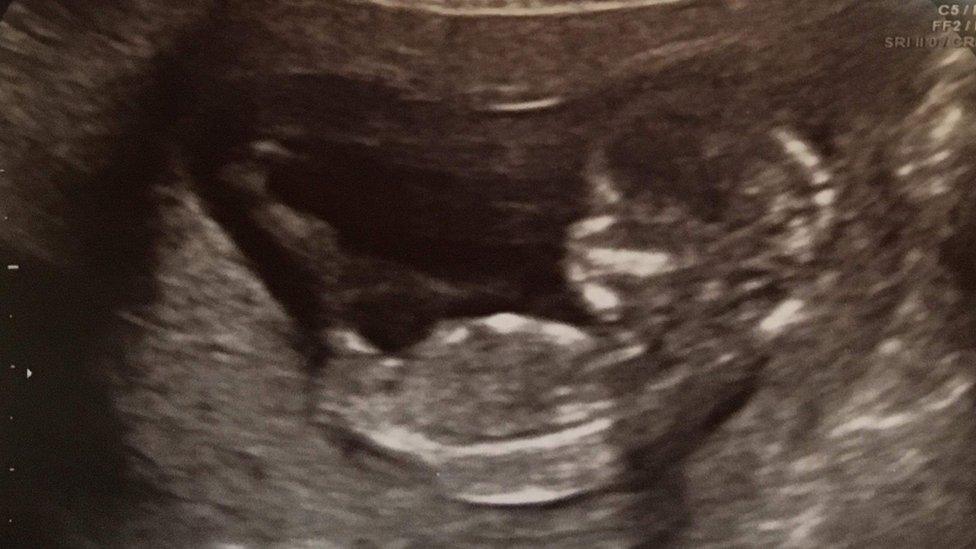
Laura and Dave kept the pregnancy a secret for fear of experiencing another loss
Prof Quenby said they used steroids to suppress Laura's immune system to allow the pregnancy to progress beyond 24 weeks, when babies have a chance of surviving. Drugs helped stop her blood clotting.
"The steroids do have side effects," said Prof Quenby. "But we both decided it was worth one more go."
After so many tragedies, Laura and Dave said they did not dare to dream this pregnancy would work.
"We didn't really tell anyone. It was the hardest thing to keep in but the hardest thing to share. I just kept thinking if we tell people, we're going to jinx it," said Laura.
And then, at 30 weeks, Laura was in bed at home when her waters broke. Ivy was delivered by caesarean section while Laura was under a general anaesthetic. She weighed just 1.7 lbs, about the same as a Christmas pudding.
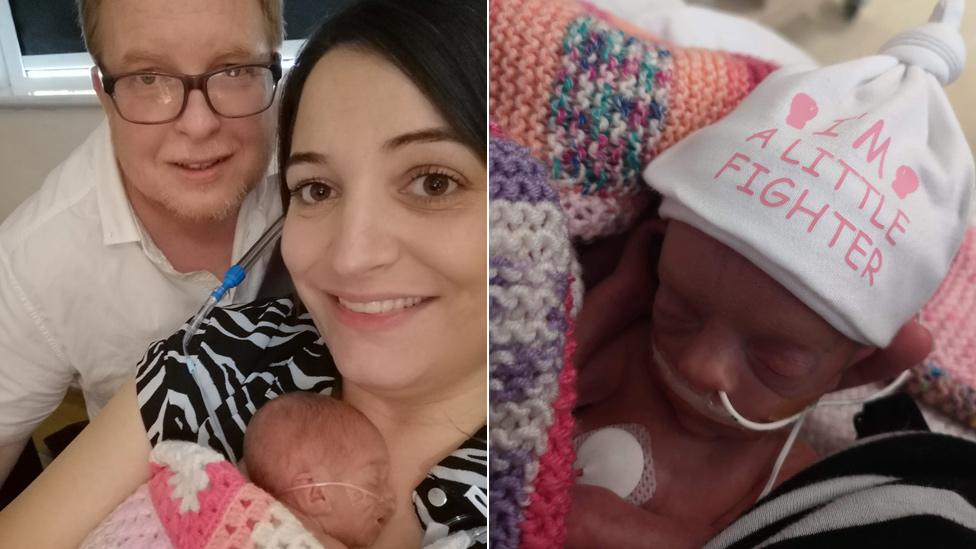
Ivy was a fighter right from the start, Laura said
"My husband saw her first. He showed me a photo of her when I woke up," said Laura, whose daughter had been taken straight to a neonatal incubator in intensive care.
It was three days before they could hold her. The new parents were warned Ivy might develop sepsis but she continued to thrive.
"I just thought, she's a fighter. She just kept going forward all the time, she never went back," said Laura.
For Prof Quenby, it was two months before she dared to visit Ivy on the ward.
"I was delighted she was here but I just couldn't bear to see her until I knew she was ok. I'd ask the nurses to go and see her for me but I was too scared."
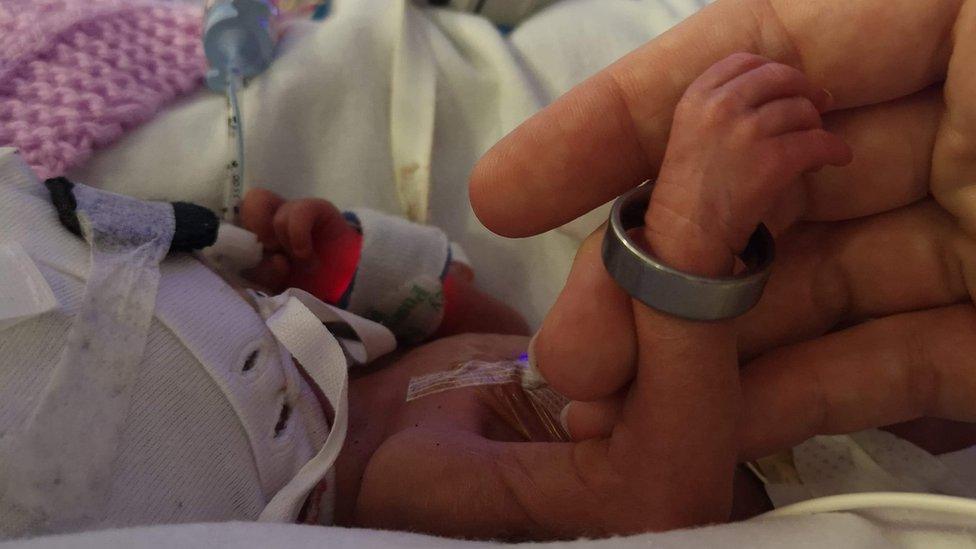
Ivy was so small, her father's ring fitted on her wrist
After 11 weeks in hospital, which included recovering from bronchiolitis, Ivy was able to go home.
She is now nine months old, and Laura's case is being highlighted globally as an example of how women with her conditions could still have successful pregnancies.
"I look at her and think 'miracles do happen', said Laura. "I'd read about other people's miracles, and now I've got mine."
"Laura's case is benefitting people across the world," said Prof Quenby. "Many in her situation would have given up, but she just kept going."
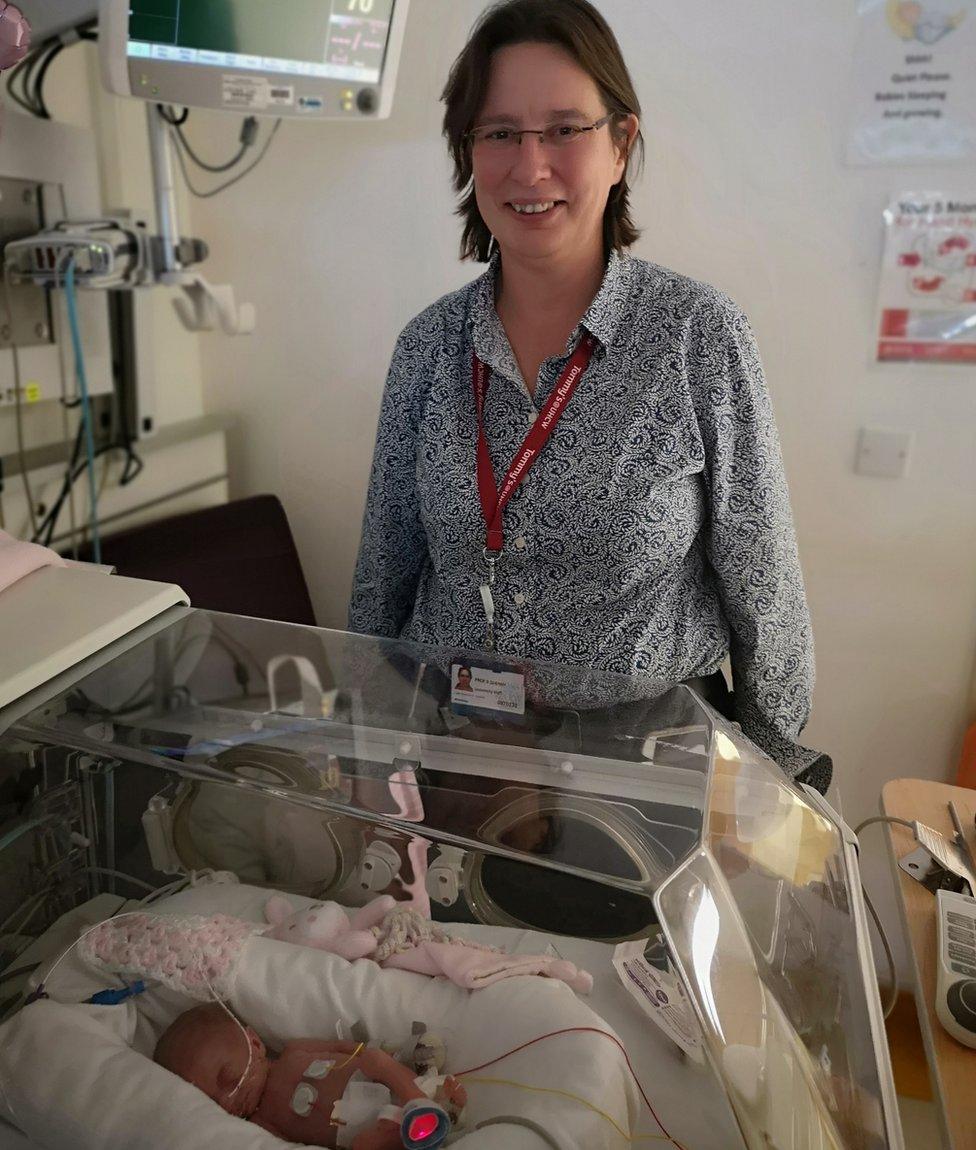
Prof Quenby eventually plucked up the courage to meet Ivy in hospital
Laura and Dave held a baby shower for Ivy - after she was born - and raised more than £1,000, which they have donated to the hospital's charity.
"It's so important to be able to make a difference for anyone else going through what I went through," said Laura, who is continuing to raise money through a JustGiving page.
"Through my story I want to give others the hope and strength to carry on even when things seem impossible."
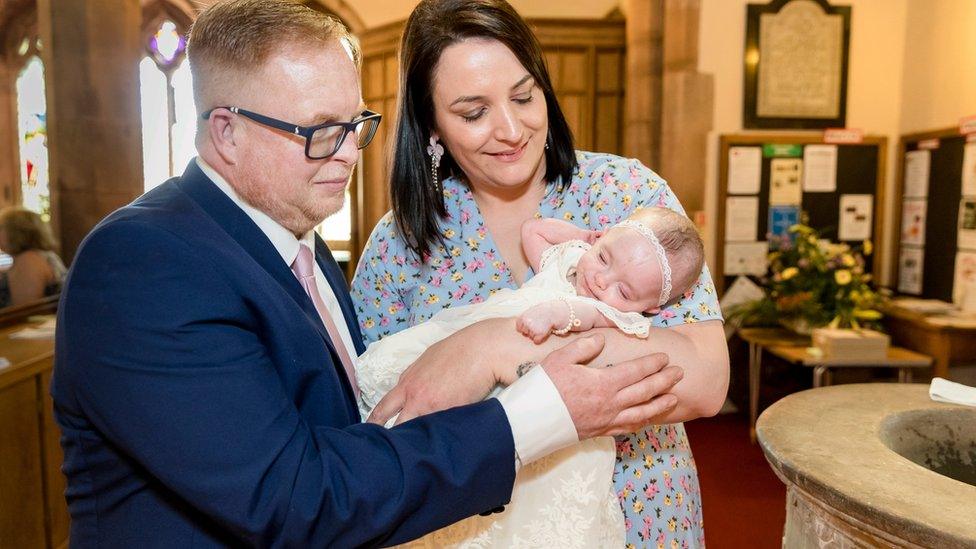
The couple have now had Ivy christened

Follow BBC West Midlands on Facebook, external, on Twitter, external, and sign up for local news updates direct to your phone, external.
- Published21 May 2019
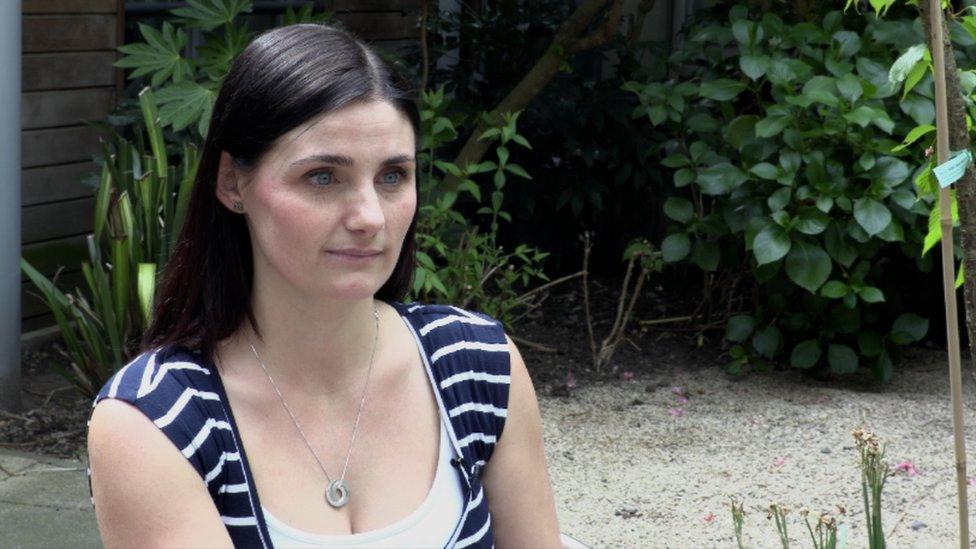
- Published10 July 2018
